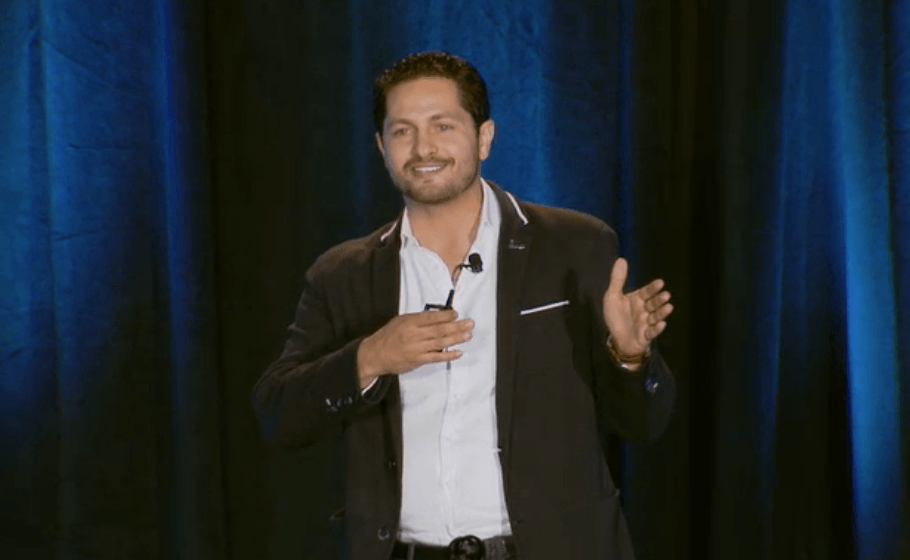
The annual Net Impact conference brings post-graduate students and professionals together to invent new ways businesses can have a positive impact on society. Beyond the conference, the global Net Impact community of over 100,000 students and professionals seeks to drive collaboration around social and environmental change. And if Ahmad Ashkar, founder and CEO of the Hult Prize Foundation, is any indication, this model of inspiring students and creating a network around impact can work.
Seven years ago, Ashkar was a student attendee at Net Impact. He had just founded the Hult Prize, a millennial startup incubator focused on impact-driven companies. Since 2009, the Hult Prize grew from a small pitch competition to a network of established offices around the globe and hundreds of campus chapters in over 130 countries. More than 100,000 people have participated in the Hult Prize since its founding.
The model proved so successful that it attracted the attention of former U.S. President Bill Clinton, and the foundation now partners with the Clinton Foundation on its annual $1 million prize. Dubbed "the Noble Prize for students," the Hult Prize portfolio of startups includes trailblazers in food security, healthcare, education and clean water. To put the success of its participants in perspective, check out the Forbes' 2015 30 under 30. Of the 30 rising stars listed, 14 are Hult Prize alums, Ashkar said at the 2016 Net Impact conference in Philadelphia last week.
This success speaks not only to the validity of the Hult Prize model, Ashkar said, but also to the rise of a new kind of company.
"At the Hult Prize, we believe the companies of the future will be impact-centered, profit-minded and market-driven," Ashkar said on Saturday. "If you create this kind of initiative for a company, you don’t need to worry about output metrics, because your company is designed correctly."
In an age when the majority of consumers say they will seek out a sustainable product when possible, even established companies are beginning to warm to this impact-centered approach, Ashkar explained.
"Corporations are starting to realize that impact and having a positive net effect on the communities you serve yields to higher share price. This is the best outcome we can hope for."
At an event attended predominantly by post-graduate students, it’s no surprise that Ashkar cited millennials as the driving force behind this shift to impact-centered business models.
"The millennial generation is re-shifting the way corporations think about business," Ashkar said. "Why? Eight out of 10 of us seek out brands having positive impact."You understand what that’s doing to the corporation. You’re telling the corporation, ‘If you don’t have impact on the society that you’re serving, you will be extinct in a decade.’ That’s big."
While some in the sustainability set may find the millennial argument a bit tired -- and even millennials are growing weary of the moniker -- the market realities back up the buzzword. Almost 75 percent of millennials say they are willing to pay more for a sustainable product, according to a 2015 Nielsen global online study. These figures are about the same for respondents aged 15 to 20, also known as Generation Z.
If these trends remain steady as younger generations gain buying power, it only makes sense that companies pursuing sustainability and impact will rise to the top, while the laggards are left behind. This is already becoming clear in the markets, Ashkar said, using industry leaders like Patagonia and Ikea as examples.
"The value, the market cap of a company can be credited to how much good work it’s doing -- and doing it sustainably. We can now sniff out companies which are simply allocating top-line revenue to the poor — that’s not good enough. You need to design for impact."
Save for early adopters, this market shift will likely present growing pains for established companies -- and some may not survive. But for social enterprises like those gaining funding and exposure through the Hult Prize, this new economic mindset presents an opportunity to get it on the ground floor.
And Ashkar insisted companies designed with impact in mind are better able to weather the storm: They don't have to worry about a board member reprioritizing short-term gains or a product trend disrupting their core mission. If you have a good idea centered around impact, the young CEO contended, the deck is stacked in your favor.
"As you think of your next big enterprise, your next big idea, you have to design for impact. You have to design your product or service so that, by a mere function of you existing, you have a net impact on society."If you follow the mindset of impact-centered, profit-minded and market-driven, all you need to focus on is one measurement: revenue. Period. Because your companies are designed for impact."

Mary has reported on sustainability and social impact for over a decade and now serves as executive editor of TriplePundit. She is also the general manager of TriplePundit's Brand Studio, which has worked with dozens of organizations on sustainability storytelling, and VP of content for TriplePundit's parent company 3BL.














